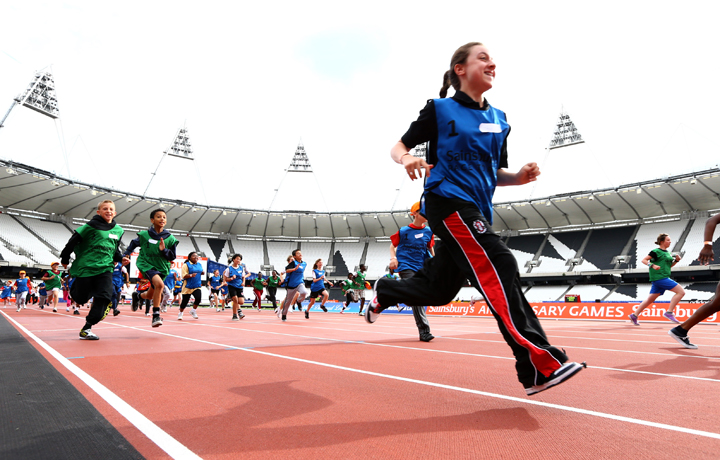TORONTO – Does cutting into study time for gym class help students with their homework habits?

Studies have suggested that regular physical activity helps to boost kids’ grades but now a Canadian researcher is putting this theory to the test in several provinces across the country. The study is the first of its kind in Canada.
Dr. Brian Timmons is teaming up with a national organization called Start2Finish, which helps underprivileged kids gain access to after-school exercise programs and reading buddies.
Timmons says the program is “ahead of its time.” Volunteers get students active about once a week for two hours. Then they spend one-on-one time devoted to reading and writing.
READ MORE: 5 lifestyle changes to improve your heart’s health
“It speaks to what we’ve known for quite awhile, that there’s a link between exercise and academic performance. When you take away time devoted to academics, they don’t suffer,” he said.
“The novel thing about this study is it’s a practical program delivered in the schools and targeted at kids who are disadvantaged and wouldn’t otherwise have an opportunity to join a sports team,” he said.
Hockey camps and sports equipment can be costly. That means pockets of students miss out on joining baseball leagues or gymnastics classes – all opportunities to learn about teamwork with peers, gaining self confidence and exercising.
Timmons is an associate professor at McMaster University’s department of pediatrics in Hamilton, Ont. He’s also director of the child health and exercise program.
READ MORE: How healthy is your city? 7 findings about Canada’s best and worth cancer-fighting cities
Timmons hopes to measure the correlation between exercise and good grades. Students were tested at the beginning of the year on their physical endurance – through, say, running laps or doing drills – and again at the end of the year. Their grades will be handed to Timmons through their schools.
The goal is to identify what the changes are in their fitness and their grades, then understand the link between the two. Does a five per cent increase in endurance correlate to a five per cent increase in grades? Does an extra 20 minutes of running boost students’ focus by an extra 20 minutes?
“Not all kids are going to improve fitness, but we’re questioning what the relationship looks like and if there’s a threshold,” Timmons explained.
READ MORE: Snapshot of health care in Canada – What you need to know
It makes sense: from a physiological perspective, when we exercise our muscle cells get stronger in the heart, in our limbs, and our brains. Exercise also increases blood flow to the brain and keeps our cognition in action.
A study published last month – and it’s one of many – suggested that the recommended hour of daily physical exercise could increase grades by one level.
In Timmons’ study, 550 kids from grades 4, 5 and 6 from Hamilton, Ottawa, Winnipeg and Edmonton will be studied for the next year.
READ MORE: Preschoolers’ eating habits linked to future heart health risks, Canadian study suggests
By June, they’ll be tested again on their physical endurance while their final report cards are prepared.
If there is a strong relationship between exercise and good grades, Timmons said Start2Finish hopes its program could expand into other parts of Canada.
carmen.chai@globalnews.ca
Follow @Carmen_Chai




Comments